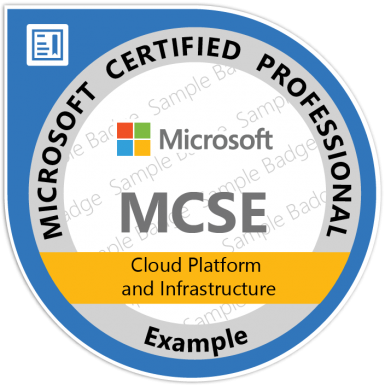Best JavaScript Framework and Library to learn in Nepal
"Any app that can be written in JavaScript, will eventually be written in JavaScript."
- Jeff Atwood
JavaScript frameworks are one of the most popular platforms for developers and organizations today when it comes to web development. JavaScript (JS) frameworks are one of the most popular platforms for developing dynamic modern applications, such as real-time chat, e-commerce, inventory, and processing. Finding the right platform on which to build your app is critical.
What is a JavaScript framework?
JavaScript frameworks are the vessels encouraging the language to accomplish its best work with almost no configuration.
It's gotten so prevalent over time that it's now found in web applications, server applications, server-side, mobile apps, and even games. Instead, JavaScript frameworks are a collection of diverse JavaScript code libraries that have been built together to make it easier for developers to reference and use the scripts. Frameworks (FM, F/M, FRWK, FWK) are pre-built sets of code that are put together to make development straightforward and painless.
What Is the Difference Between a JavaScript Library and a JavaScript Framework?
Developers can use JavaScript libraries to call specific functions from the parent code. Developers, on the other hand, cannot refer to JavaScript frameworks as such. Frameworks, on the other hand, call and utilize code in a predetermined fashion. The application design is defined by frameworks.
Utilizing framework code is more comprehensive than using libraries. A framework is more than simply a single solution; it's a whole development template. More organization and efficiency are the benefits.
Developers can use JavaScript libraries to call specific functions from the parent code and cannot refer to JavaScript frameworks as such. Lets have a look at Best JavaScript Framework and Library to learn in Nepal
Overview
JavaScript is one of the most mainstream dialects of time past and present, it's a top choice for web development both on the front and back-end. All things considered, you'll likely be amidst picking a JavaScript framework soon.
Picking the right tech stack can be the distinction between whether your business makes it or breaks it. However, we've compiled a list of all the JavaScript frameworks that developers choose to use in their apps.
What are the best JavaScript frameworks to learn?
Angular
The Angular framework was released by Google as a visionary of future changes in web APIs. Angular.js is a well-known open-source and one of the best front-end JavaScript frameworks for creating dynamic single-page web apps (SPA).
By providing a framework for client-side model–view–controller (MVC) and model–view–view model (MVVM) architectures, as well as components typically used in rich Internet applications, it seeks to facilitate both the building and testing of such applications.
Features and functionalities
The data-bindingThe two-way data-binding function makes it easier for programmers to write code. It is formed between model and view components by the automatic synchronization of relevant data.
Templates
Browsers parse these and transmit them directly into the Document Object Model (DOM).
Injestion of Dependency
Has built-in dependency injection, which aids in the more natural development and testing.
Directives
This feature makes it simple to create custom HTML tags that behave as new custom widgets. It's even used to work with DOM attributes.
Code Generation Angular converts templates into code that is better optimized for JavaScript virtual machines, giving you the benefits of hand-written code.
Splitting Code
Angular applications load quickly using the new Component Router, which provides automatic code splitting. As a result, users load the code required to render the View they have specifically requested.
Progressive Web Applications (PWAs)
Advanced web platform capabilities include the ability to create app-like experiences that are faster, work offline, and require no installation. Native Delivers Cordova, NativeScript, or Ionic strategies that are used to build the native app.
Node JS
Node.js is an open-source server-side platform based on the JavaScript Engine in Google Chrome. It is an open-source, cross-platform runtime environment for executing JavaScript code outside of a browser that is one of the most often downloaded.
In the face of data-intensive real-time apps that run across dispersed devices, the framework is capable of driving asynchronous I/O to stay lightweight and efficient. It runs in the JavaScript Runtime environment, therefore it has many of the same features as JAVA, such as threading, packages, and loop formation.
Features and functionalities
Server-side proxy
It can be used to proxy servers and aids in the streaming of data from many sources.
No buffering
NodeJS apps do not buffer any data in any way. This is because the programs publish their data in chunks.
Asynchronous
The provided APIs of Node's library are driven asynchronously, so the server does not have to wait for an API to return data; hence, presenting the data in this manner provides a quick response to each request.
Scalable
Node makes use of single-threaded models with event looping. The given event system enables servers to respond asynchronously, making them very scalable. When compared to the Apache HTTP server, this functionality allows you to handle more requests at once.
Open Source
In the list of finest JavaScript frameworks, Node JS is considered one of the most popular. Because Node.js is open-source, there are a variety of models that may be used to expand the app's capabilities.
Swift
Because it is built on Google Chrome's V8 JavaScript engine, the Node.js library is fast when it comes to accurate code execution.
React JS
React JS is a Facebook-backed open-source library. It's used to assist in the development of small and large-scale web applications, and it's very effective in the creation of interactive websites. “A JavaScript Library for Building User Interfaces” is its tagline.
React is also known as a single-page application (SPA). This word refers to online apps that are small enough to fit on a single web page and don't require frequent browser refreshes. Components are used to help encapsulate code and state. Components make it simple to build sophisticated user interfaces.
React is written in JSX, an XML-like syntax that blends JavaScript and HTML. It isn't a templating language; instead, it is pure JavaScript. React has a lot going for it, and it's a library to keep an eye on if you're working on the front end of a website.
Features and functionalities
Component-based
React.js is a component and user interface framework. When it comes to maintaining the code while running larger-scale development projects, this method comes in handy
JSX
It means that the script has to be processed and converted to JavaScript. When combined with JavaScript, JSX can shorten and simplify required syntaxes, transforming and simplifying coding.
Binding data
Flux controls are one-way data binding throughout the application infrastructure. The one-way data flow in an application makes things easier, and Flux helps to maintain data unidirectional.
Handling of events
React is one of the finest JS Frameworks. It's a W3C object model that's completely compatible. There are no problems with conflicting event names and fields because it provides a simple cross-browser interface to the native event. React reduces memory use by using event delegation to execute and implement the event system, which includes a pool of different event objects.
Performance
With the support of an application architecture known as Flux controls, react uses one-way data binding. ReactJS aids in the application workflow by updating the user's View and Flux controls. Virtual DOM adds value by comparing new data to the original DOM and upgrading the View.
Native React
One of the most popular JavaScript frameworks for mobile app development is React Native. With its optimal speed, user interface, competency, and cost-effective approach, it attracts a huge community of developers. It was founded by Facebook and runs on the principle of 'Learn once, write everywhere.' It provides a truly native experience for everyone. It is driven by a large community of contributors from all around the world.
Characteristics:
- Due to a large library of React components, application development is faster.
- Components written in Swift, Objective-C, and Java are combined.
- Code development that includes some React Native and some native code.
- Support for third-party plugins that is consistent
- Supports iOS and Android platforms with a single codebase.
- Provides a responsive interface for an app that runs smoothly.











